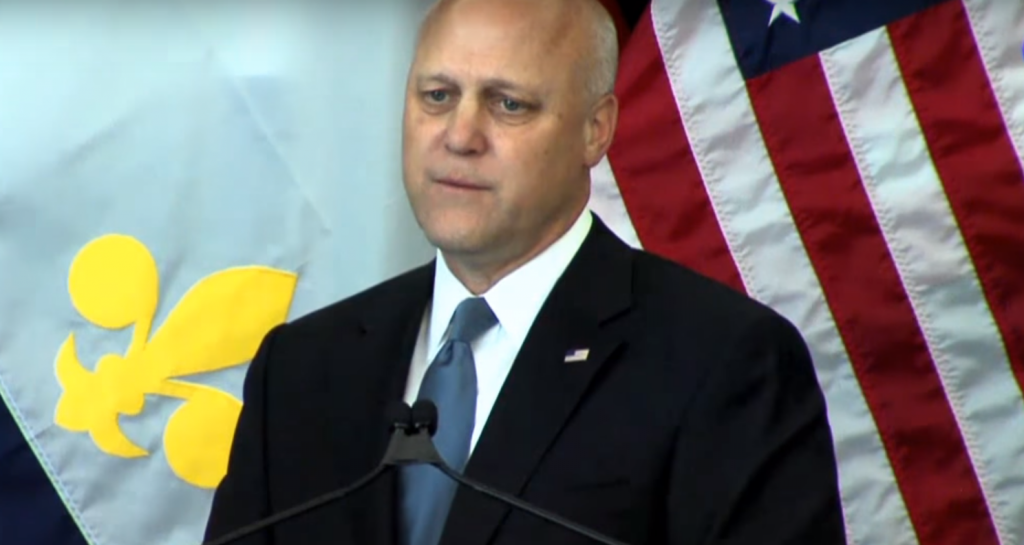New Orleans Mayor Mitch Landrieu’s New Book Explores Monuments, Race
“Here is what I know about race. You can’t go over it. You can’t go under it. You can’t go around it. You have to go through it.”

Note: This conversation first aired on Detroit Today with Stephen Henderson on April 6, 2018.
New Orleans Mayor Mitch Landrieu made national headlines last year when he had the confederate statues in his city removed. He was at the front of a national wave of confederate statue removals as the South looked to reconcile its history with white supremacy and reverence for the defenders of slavery.
Landrieu, a white man leading a majority-black city, received a lot of attention for this speech on his decision to remove the statues:
Landrieu writes in his new book “In the Shadows of Statues: A White Southerner Confronts History” that the decision to remove the statues came with aggressive resistance. He even struggled to find contractors willing to remove Jefferson Davis and Robert E. Lee from their pedestals. And he lost popular support among his white constituency.
But Landrieu did successfully remove the statues before the end of his second term, which ends in May of this year. He says in his book that he only regrets not having them replaced with new public art before he leaves office.
Landrieu writes about a life-long confrontation with race and racism, first as a young boy growing up in an integrated neighborhood in New Orleans, attending Jesuit schools, and as a the son of a popular mayor, Moon Landrieu, who was progressive on civil rights.
He writes in his book:
“Here is what I know about race. You can’t go over it. You can’t go under it. You can’t go around it. You have to go through it.
“I have been searching for my way through race for all of my conscious life and will keep doing so until God mercifully takes my last breath. The voices across the years, from childhood, through my education, and into public office, speak to me still.”
A key voice speaking to Landrieu about race while he was mayor was jazz musician Wynton Marsalis, who challenged Landrieu to look at the statues from the perspective of African Americans living in New Orleans, and also to consider having the statues removed.
“Really something changed in me,” Landrieu tells Detroit Today senior producer Laura Weber-Davis. “I write about those feelings that I heard from African Americans.”
Landrieu says it was important for him to say publicly, and to write in the book, the truth about the statues; that the Civil War was fought to defend slavery, and the statues were erected decades later to promote white supremacy.
“You have to state that [Confederates] were on the wrong side of history, and the wrong side of humanity.”
“The war was fought over the cause of slavery, period. It wasn’t economics… it wasn’t a noble cause,” says Landrieu. “That, unfortunately, is very hard for some people to say these days, and it shouldn’t be. Because if we can’t say that very simple thing, it’s hard for us to get to the next generation of resolution on race.”
Landrieu’s national profile has been raised, in part because of his position on the statues, but also as a buzz lingers around him that he may consider running for president in 2020. For now, Landrieu says he’s not thinking about that.
“In politics you never say never, but it’s not something I’m working on now or intending to do.”
To hear more from Landrieu on Detroit Today, click on the audio player above.
